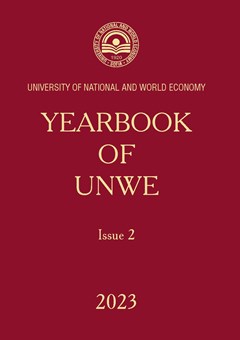Is Bulgaria Ready to Join the Euro Area – Income Convergence or Similarity of Shocks Criteria?
Author: Ivan Todorov
Abstract
This article decomposes AD-AS shocks across EU countries using the traditional B-Q SVAR model. The results provide evidence that fluctuations in the Bulgarian economy have a similar origin and contribution to growth as those in the euro area. Therefore, the slower pace of income convergence to EU/EA levels is determined by domestic (fiscal) policy. This calls into question the causality of the argument that Bulgaria will accrue negatives if it adopts the euro before reaching some “mystical” GDP per capita threshold. The EMU integration is likely to produce more net benefits for a larger group of countries with similarity of shocks and may explain why the euro area now has more members than would have seemed possible since the Great recession.
JEL: E52; F33

